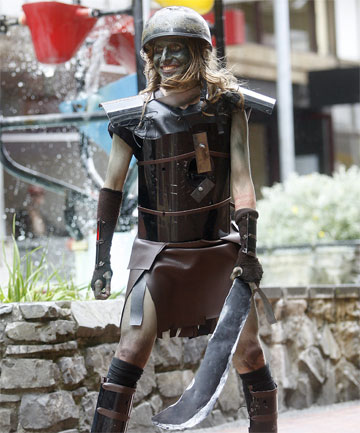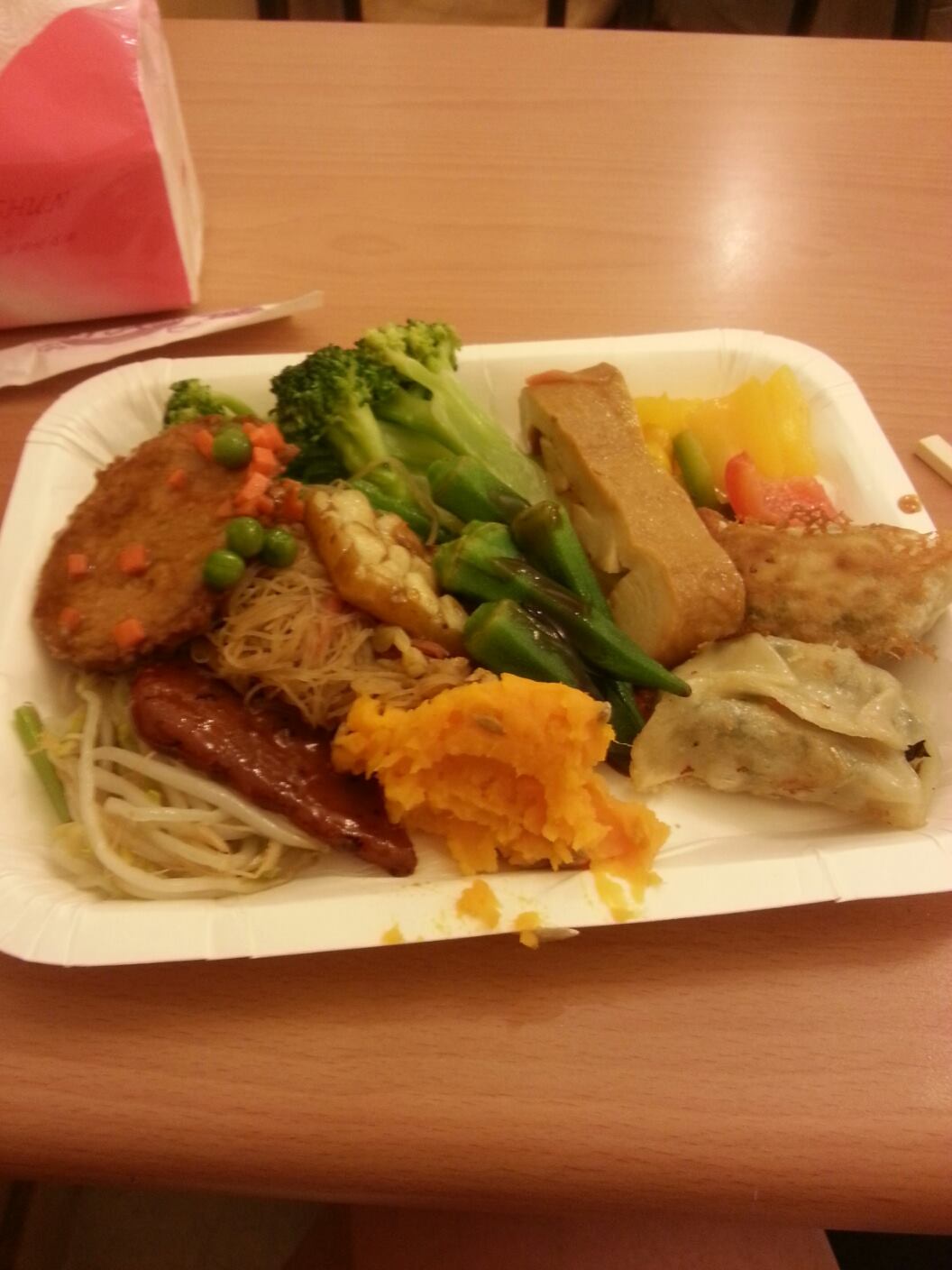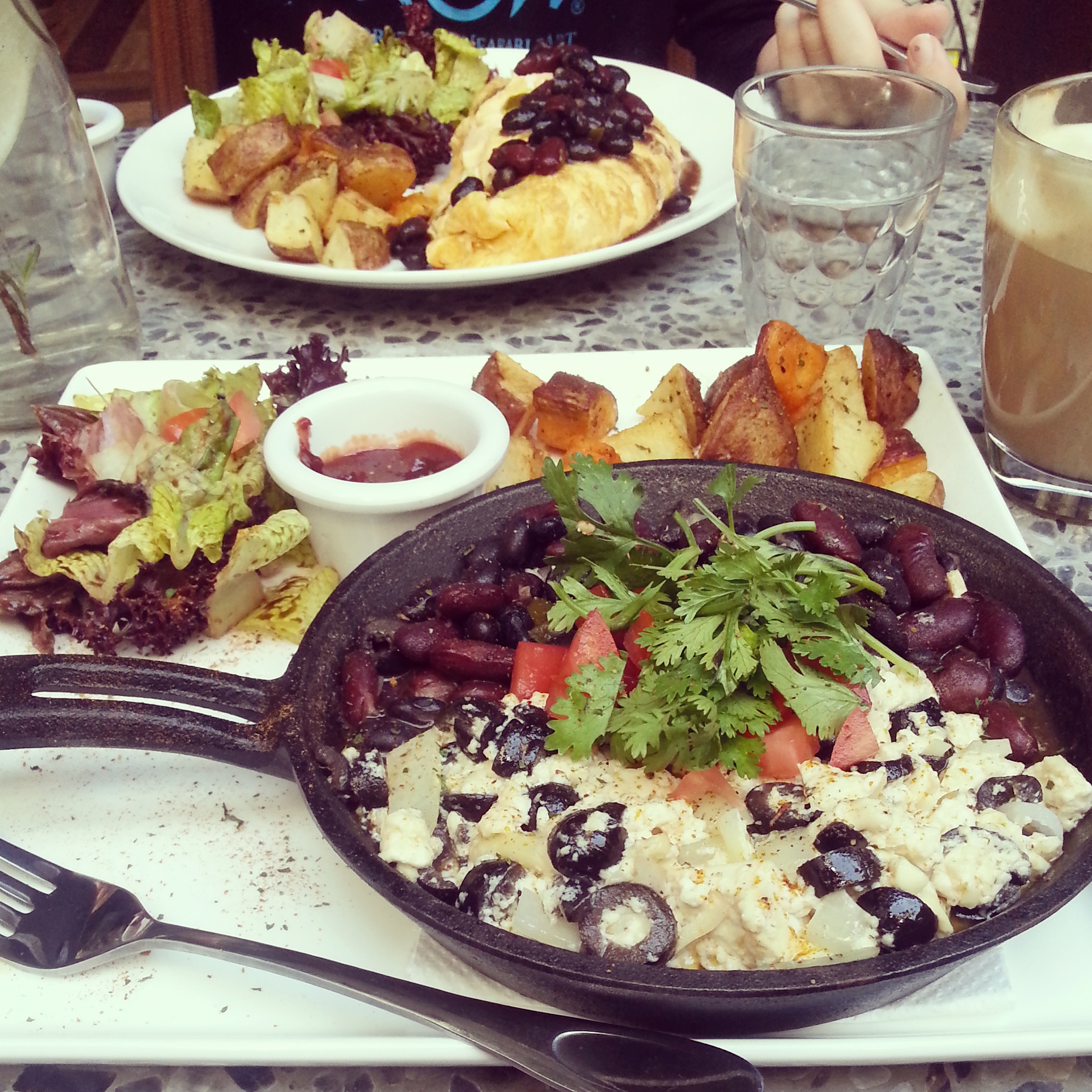Today a woman stopped me in the street on my way out of the metro, as I was trying to cross the road to get to my apartment, and food. “Do you know how to be happy?” she asked, smiling unnaturally and handing me a flier. I’ve been homesick all week thanks to working Christmas, I haven’t had a day off other than Sundays in several months, and I’m going through an ‘I hate my job, I’d rather be anywhere else but here’ phase. It will pass, but strangely enough when my blood sugar is on a downward spiral and there’s a strange woman keeping me from my food… that’s not something I remember.
I think I may have muttered ‘no,’ rather offishly, and looked pointedly at the lights willing them to change.
She handed me a leaflet: ‘Keys to a Happy Life.’ As I walked up the stairs I realised she was a Jehovah’s Witness. They’ve made it to Asia now? Where do I have to move to escape them?
Which, of course, has me thinking about happiness. My personal happiness project has slipped a little this month, thanks to aforementioned burn out and lack of festive spirits. I’ve been mainly focusing on getting out bed in the morning, and on not crying at work when a kid makes my life difficult on Christmas day, and I look on Facebook to see friends and family having Christmas as it should be. Whatever, it’s been hard, but it’s not like I ever thought it would be easy.
Onwards and upwards, and here comes 2015. There are many arguments for why New Year’s resolutions don’t work. The easiest comparison to make about them is that they’re like diets. They’re a short-term fix rather than a lifestyle change, and people quickly slip and pile back on the pounds, or the broken resolutions. Here’s a link that will send you to a study on New Year’s Resolutions, with the statistics that 60% of them fail, mainly after the first week. A plethora of articles across the internet advise making small changes that are attainable. This seems logical enough. But I’m going to go back to the Happiness Project here for inspiration, or what I termed my ‘Buddhism Project‘.
Sure, setting a small goal may be easier to keep, but it’s also easier to discard. I like the idea of stepped changes. Like Gretchen Rubin adds a new set of changes every month, I like to have an end goal that is fairly considerable, but broken down into manageable steps. Losing a total of 40 pounds can be broken down into 3-5pounds a month, for instance, which is achievable and also allows room for failure on one or two of the months.
Another article, published only about 15 hours earlier than this blog post, says that New Year’s resolutions are procrastinating something you should be starting today. Sure, if it’s losing weight or quitting smoking maybe. I personally like the idea of a concrete date to make a change, though, and here’s where the revolution aspect of resolutions comes in: using the last few days of the old year to properly take time to reflect on your life is valuable time to think over what realistically needs changing, and how to do it. I like the word revolution for its double meaning: typically we think of revolutions as an uprising against a political power, but the word originally come from the Latin ‘revolutio,’ meaning turn around. A new year is a fresh start, a revolution, or a turn around. A reason to look at what hasn’t been working, and what has been working but could work better. I like to think of it as a chance to refocus: to look at where I’ve gone off track this year, and to work on pulling things back in.
For me, this year has been somewhat stale. This may seem odd as I’ve graduated and moved to Asia in 2014, but in terms of having a direction in life I’ve actually backtracked. This was mainly due to a messy break up and my somewhat rash decision to flee the country when, excuse the phrase, I was so confused about what was happening in my life that I couldn’t tell my arse from my elbow. Suddenly I was in Taiwan going ‘how did I get here? What?’ Strangely enough, this is a common story here. In many ways this year has been a huge turning point in my life, but most of it has been spent trying to figure things out, remembering how to be alone, getting good at being alone again, losing the ability, regaining it, and dealing with a full time job involving lots of very very small humans who don’t speak my language.
In conclusion, I’m currently working on my list of New Year’s resolutions. Nowhere does losing weight feature, or quitting smoking. I don’t smoke so that’s a no-brainer, but you get the principle. My main challenge is to be more productive with my time, so that I can manage to fit a life of my own in around my job. I’m starting with getting up earlier. Not much earlier, just an hour or so. Then I’ll try and be productive in that hour. Then I’m going to get up a little earlier still until I can fit in a decent amount of exercise, or a blog post, or some Chinese. I’ve been working on phasing out TV series’ (on my laptop, I haven’t watched an actual TV in a long time) for a while. It’s going pretty well, but then it’s an ongoing process, not sudden cold Turkey.
While there’s no reason not to do this throughout the year, I personally like the concrete milestone provided by the New Year, and the inevitable reflection on the past year that we all find ourselves doing. I don’t believe New Year’s resolutions are worthless, or procrastination. They’re a way of starting as you mean to go on, of staging a revolution against what isn’t working, and of turning around and refocusing the things that are but could do better.




